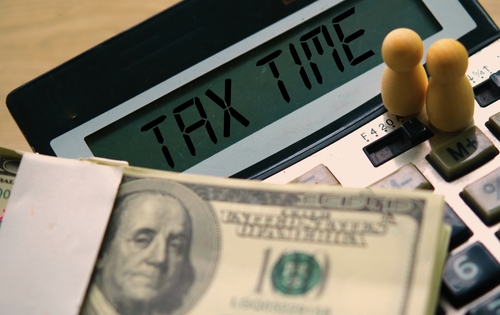
Maximizing Deductions: Tax-Saving Strategies for Small Business Owners
As a small business owner, you understand the importance of managing your finances effectively and minimizing expenses. One area where you can significantly save money is through tax deductions. By taking advantage of various tax-saving strategies, you can maximize your deductions and reduce your overall tax liability. In this blog post, we will explore some key strategies that will help you maximize your deductions and keep more money in your pocket.
1. Keep Accurate and Organized Records
To maximize your deductions, it is crucial to keep accurate and organized records of all your business-related expenses. This includes receipts, invoices, bank statements, and any other relevant financial documentation. By maintaining meticulous records, you will be able to easily identify and substantiate your deductions when filing your tax returns. Consider leveraging digital tools and accounting software to streamline and automate your record-keeping process.
2. Separate Personal and Business Expenses
Mixing personal and business expenses can make it challenging to determine which expenses are eligible for deductions. It is essential to keep your personal and business finances separate to ensure that you can clearly identify and claim business-related deductions. Open a separate bank account and use dedicated credit cards for business expenses to simplify the process of tracking and categorizing your deductible expenses.
3. Take Advantage of Home Office Deductions
If you operate your small business from a home office, you may be eligible for the home office deduction. This deduction allows you to deduct a portion of your home-related expenses, such as rent, mortgage interest, utilities, and maintenance, based on the percentage of your home that is used exclusively for business purposes. Make sure to familiarize yourself with the criteria and requirements set by the Internal Revenue Service (IRS) to ensure that your home office meets the necessary qualifications.
4. Track and Deduct Business Mileage
If you use your personal vehicle for business purposes, tracking and deducting your business mileage can result in significant tax savings. Keep a detailed log of your mileage, including the purpose of each trip and the distances traveled. You can deduct either the actual vehicle expenses or use the standard mileage rate provided by the IRS. Whichever method you choose, ensure that you have proper documentation, such as receipts, fuel logs, and maintenance records, to substantiate your deductions.
5. Maximize Retirement Contributions
Contributing to a retirement plan not only helps you secure your financial future but can also provide substantial tax savings. As a small business owner, explore retirement plan options such as Simplified Employee Pension (SEP) IRAs, Solo 401(k)s, or SIMPLE IRAs. These plans allow you to make tax-deductible contributions, potentially reducing your taxable income. Consult with a financial advisor or tax professional to determine the retirement plan that best suits your business and maximize the available tax benefits.
6. Deduct Business Insurance Premiums
As a small business owner, you likely invest in various insurance policies to protect your business and its assets. Premiums paid for business insurance, such as general liability insurance, professional liability insurance, or workers’ compensation insurance, are generally deductible as ordinary and necessary business expenses. Ensure that you maintain proper documentation showing the premiums paid and that the policies are directly related to your business operations.
7. Utilize Section 179 Deductions
Section 179 of the IRS tax code allows businesses to deduct the full purchase price of qualifying equipment and software in the year of purchase, rather than depreciating the expenses over multiple years. This deduction is limited to a specific dollar amount, so be sure to review the IRS guidelines to determine if your business purchases qualify. By taking advantage of this deduction, you can potentially save significant amounts on your tax bill while investing in necessary equipment and technology for your business.
Conclusion
Maximizing deductions is a crucial aspect of managing your small business finances effectively. By keeping accurate records, separating personal and business expenses, leveraging home office deductions, tracking business mileage, maximizing retirement contributions, deducting business insurance premiums, and utilizing section 179 deductions, you can reduce your overall tax liability and save money. Consult with a qualified tax professional or accountant to ensure that you are taking full advantage of all available deductions and optimizing your tax-saving strategies. Remember, every dollar saved through strategic deductions is a dollar that can be reinvested into growing and expanding your business.
Got Questions? Let Us Help!
Welcome to Kedean’s Generation! At Kedean’s Generation, we pride ourselves on our customer service and our knowledge. For more than 30 years, we have been a family owned and operated company serving the local area of Union City New Jersey. We guarantee our customers will receive friendly and personalize service every time. We offer a multitude of services such as income tax preparation, accounting, notary public, copy and fax services, business registration, and so much more! Our primary focus is customer service, we pride ourselves on the attention to detail and creating a personal relationship with our client. Give us a call today!
Categorised in: Tax Deductions
